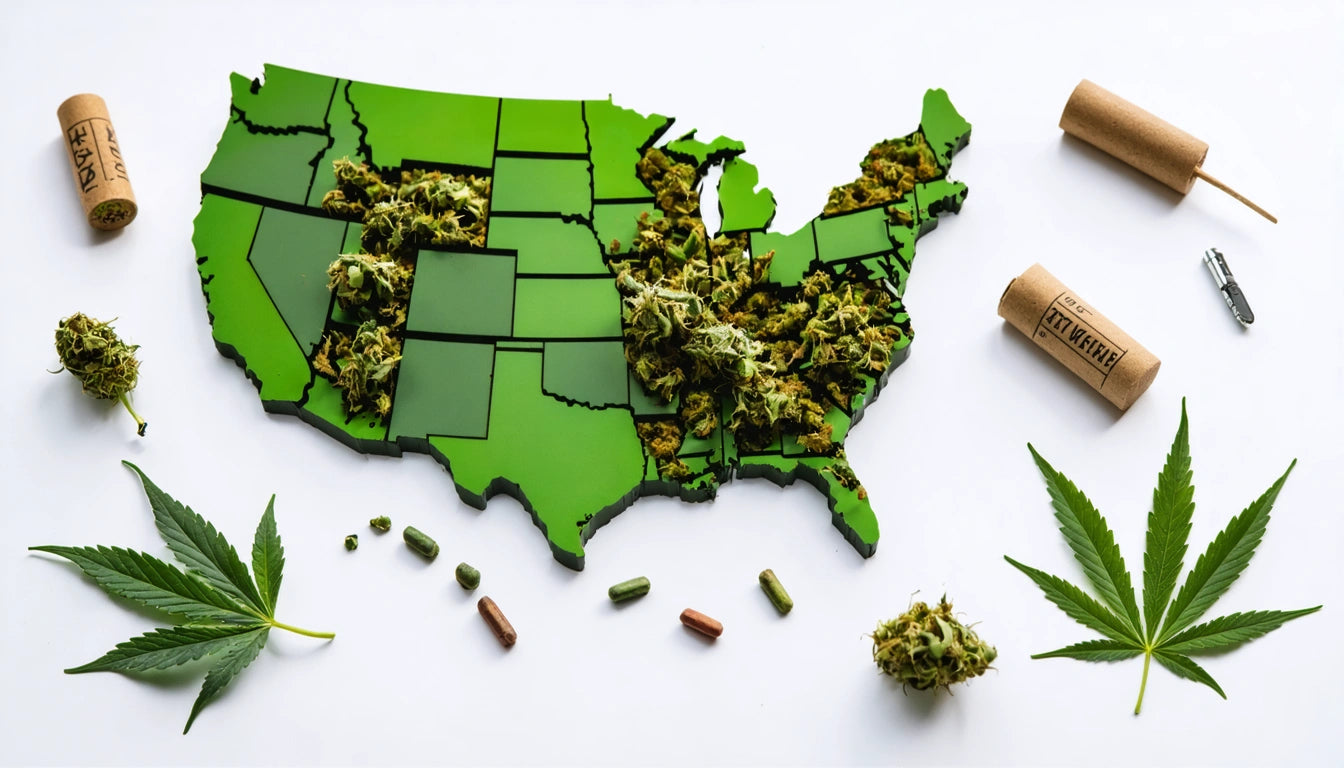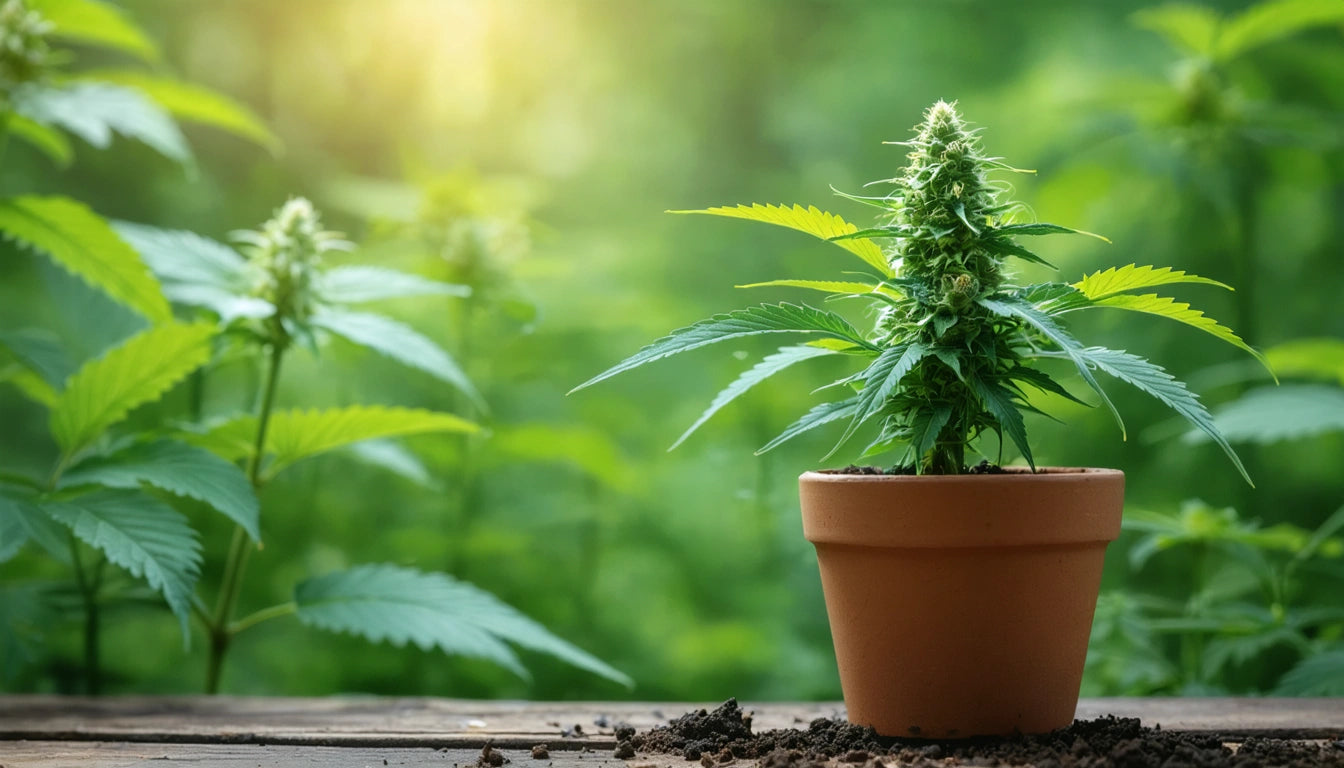Table of Contents
- Current Status of Cannabis Legalization in America
- States Where Recreational Cannabis is Legal
- States Where Only Medical Cannabis is Legal
- States With CBD-Only or Limited Medical Programs
- States Where Cannabis Remains Fully Illegal
- Understanding State Opt-Out Provisions
- The Evolving Landscape of Cannabis Legalization
Cannabis Legalization: A Comprehensive Guide to U.S. States Where It's Legal and Illegal
The legal status of cannabis in the United States continues to evolve rapidly, creating a complex patchwork of regulations across the country. As of 2023, the question "how many states is cannabis legal in America?" has become increasingly common as more jurisdictions move toward legalization. This guide provides a comprehensive overview of where cannabis is legal, where it remains prohibited, and the nuances of state-specific regulations.
Current Status of Cannabis Legalization in America
Currently, cannabis laws vary significantly across the United States, with three primary categories: states with fully legal recreational and medical use, states with medical-only programs, and states where cannabis remains entirely illegal. According to recent data, the number of states where cannabis is legal for adult recreational use has grown substantially in recent years.
As the legal landscape evolves, cannabis businesses must adapt to varying compliance requirements, including specific packaging regulations. Many producers rely on child-resistant packaging solutions to meet the stringent safety standards required across different states.
States Where Recreational Cannabis is Legal
The following states have legalized cannabis for both recreational and medical use:
- Alaska
- Arizona
- California
- Colorado
- Connecticut
- Illinois
- Maine
- Maryland
- Massachusetts
- Michigan
- Minnesota
- Missouri
- Montana
- Nevada
- New Jersey
- New Mexico
- New York
- Ohio
- Oregon
- Rhode Island
- Vermont
- Virginia
- Washington
- Washington, D.C.
Each of these jurisdictions has its own regulatory framework governing how cannabis can be purchased, possessed, and consumed. For a detailed breakdown of these regulations, you can reference this state-by-state guide.
States Where Only Medical Cannabis is Legal
Several states have established medical cannabis programs while maintaining prohibition on recreational use. These states include:
- Alabama
- Arkansas
- Delaware
- Florida
- Hawaii
- Louisiana
- Mississippi
- New Hampshire
- North Dakota
- Oklahoma
- Pennsylvania
- South Dakota
- Utah
- West Virginia
In these states, patients must typically receive a recommendation from a qualified physician and register with the state's medical cannabis program to legally access cannabis products. The qualifying conditions vary by state, as do possession limits and available product types.
States With CBD-Only or Limited Medical Programs
Some states have very restrictive programs that allow only CBD products or limited medical use under specific circumstances. These states include:
- Georgia (low-THC oil for certain conditions)
- Iowa (limited medical CBD program)
- Kentucky (limited medical CBD program)
- Texas (low-THC cannabis for specific medical conditions)
- Wisconsin (limited CBD oil access)
- Wyoming (limited CBD oil for epilepsy)
In these jurisdictions, the legal status of cannabidiol (CBD) differs from full-cannabis programs, with strict limitations on THC content and qualifying conditions. Understanding which states have legalized cannabidiol specifically is important for consumers and businesses alike.
States Where Cannabis Remains Fully Illegal
Despite the national trend toward legalization, several states maintain complete prohibition of cannabis for both recreational and medical use, with limited or no exceptions:
- Idaho
- Kansas
- Nebraska
- North Carolina
- South Carolina
- Tennessee
In these states, possession of any amount of cannabis remains criminalized, though penalties and enforcement priorities vary. Some of these states have seen ballot initiatives or legislative efforts to change cannabis laws, but none have succeeded to date.
Understanding State Opt-Out Provisions
An important nuance in cannabis legalization is that many states allow local jurisdictions to opt out of permitting cannabis businesses, even in states where cannabis is legal. Understanding which states have opt-out laws is crucial for businesses and consumers.
For example, in states like California, Colorado, and Michigan, individual counties and municipalities can prohibit cannabis businesses from operating within their boundaries, creating "dry" zones within otherwise legal states. This local control creates additional complexity in the legal landscape.
The Evolving Landscape of Cannabis Legalization
The question of "what states is cannabis legal in" continues to evolve as more jurisdictions consider reform. Several states have pending legislation or ballot initiatives that could change their status in coming years. The trend toward legalization has accelerated, with public opinion polls consistently showing majority support for cannabis reform.
Federal policy also continues to evolve, with discussions of rescheduling cannabis under the Controlled Substances Act and proposals for banking reform that would impact the industry nationwide. These changes could significantly alter the national landscape for cannabis legalization.
For the most current information on states where cannabis is legal, it's always advisable to consult official state resources, as the legal status can change through legislative action or ballot initiatives.











Leave a comment
All comments are moderated before being published.
This site is protected by hCaptcha and the hCaptcha Privacy Policy and Terms of Service apply.